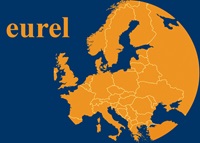A large number of existing studies have shown a strong divide in attitudes between the religious and nonreligious when it comes to issues surrounding sexuality (pre-marital/casual sex, etc.), sexual orientation (same-sex marriage, etc.), family structures (traditional vs. non-traditional families), gender roles (women in the labor force, etc.), and reproductive rights (access to abortion, etc.). Nonreligious individuals tend to be much more left of the political spectrum when it comes to these socio-political issues. Yet, we know very little about similarities and differences when it comes to religious and nonreligious persons' attitudes on other societal issues, including the climate and ecological crises. With new survey data from the Nonreligion in a Complex Future project, this paper establishes a typology of individuals along a religious/spiritual/nonreligious spectrum using latent class analysis, and examines attitudes on the environment and climate change of each of these groups across eight countries: in Canada, the USA, Brazil, Argentina, the UK, Norway, Finland and Australia.

 PDF version
PDF version
